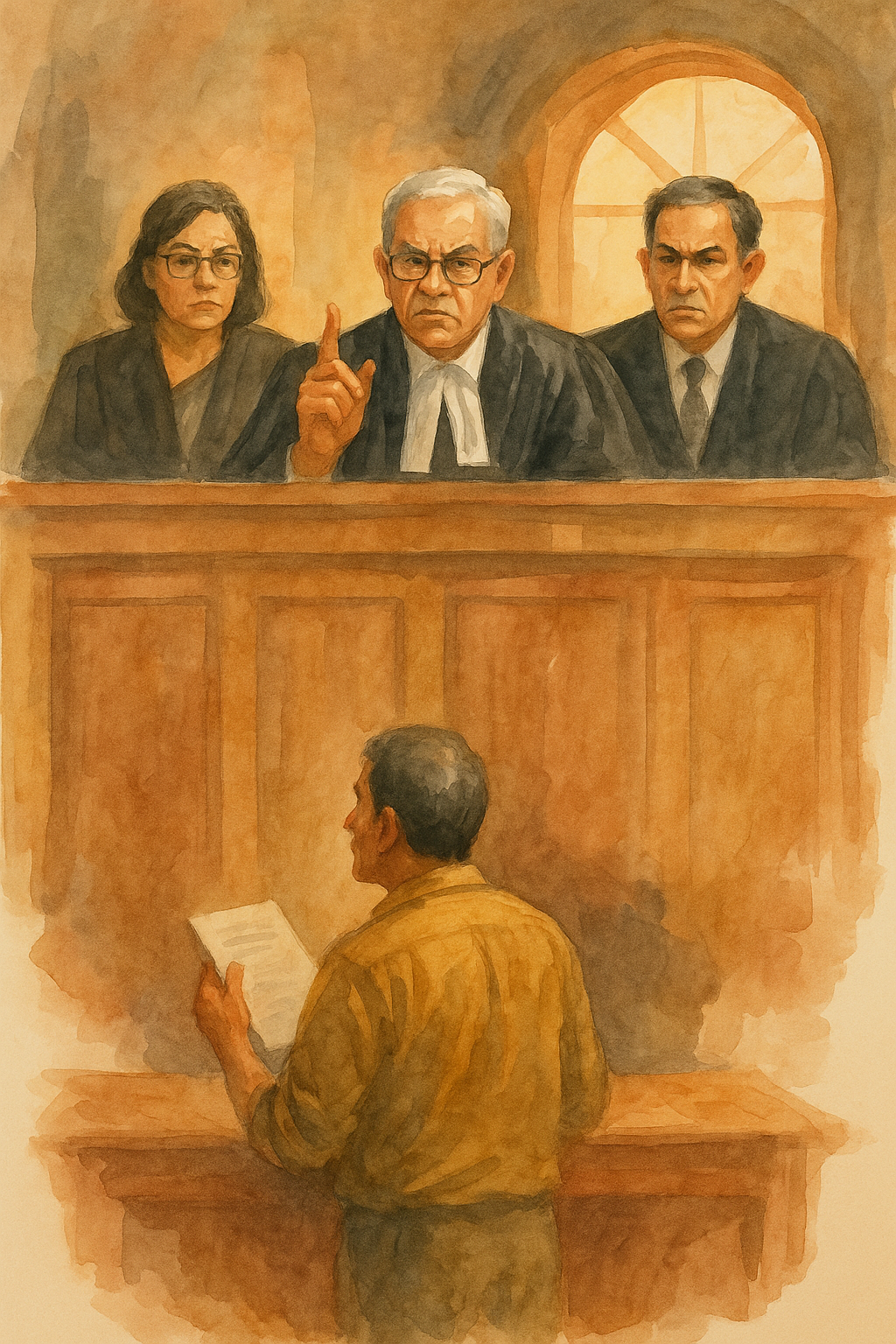Simplified Explanation of the Judgment
In a significant decision, the Patna High Court set aside a 10-year blacklisting order issued against a government contractor for delay in project execution. The court found that the blacklisting was imposed without giving the contractor a chance to respond, which violated the principles of natural justice.
The petitioner, a Class I contractor registered with the Bihar Government, was awarded a contract worth over ₹3.14 crore by the Minor Water Resources Department in 2019. The work involved extensive renovation of water channels (Ahar-Pyne schemes) in Nalanda district. The work was scheduled for completion within three months, but the contractor could not finish it on time. Authorities extended the time but still found the progress unsatisfactory, leading to a recommendation for blacklisting.
On 27 August 2019, the Chief Engineer blacklisted the contractor for 10 years under Rule 11(k)(ii) of the Bihar Contractors Registration Rules, 2007. However, no show-cause notice was issued, and the contractor was not given any opportunity to be heard. Ironically, after blacklisting him, the department still allowed him to complete the project, which was finally finished by 20 August 2021. The delay was later officially justified by the department citing disruptions due to the COVID-19 pandemic, although the original deadline expired well before the pandemic began.
The contractor challenged the blacklisting order in 2023, citing the absence of a hearing. The court criticized both the delay in filing the writ and the conduct of departmental officials. Still, it ruled in favor of the contractor, emphasizing that a 10-year ban without any notice or hearing is legally untenable.
Significance or Implication of the Judgment
This judgment reiterates a foundational principle of Indian law—no person should be punished without being heard. Even in administrative actions like blacklisting, the authorities must issue a notice and offer an opportunity for the other party to explain.
For contractors, this decision reinforces their right to procedural fairness. For government departments, it serves as a caution that failure to follow due process can render even legitimate decisions invalid. The court also indirectly highlighted issues of mismanagement and inconsistent decision-making within the state bureaucracy, especially when blacklisted contractors are simultaneously allowed to complete government projects.
The ruling promotes transparency, accountability, and rule of law in public procurement processes in Bihar.
Legal Issue(s) Decided and the Court’s Decision
- Can a contractor be blacklisted without a show-cause notice?
- No. Such action violates the principles of natural justice.
- Was the 10-year blacklisting order valid under the 2007 Bihar Contractor Rules?
- No. While the rule allows blacklisting, it must be preceded by a fair hearing.
- Does delay in filing the writ affect the petitioner’s case?
- While delay is a concern, the lack of hearing made the blacklisting illegal, warranting court intervention.
- Can the department justify delay in project completion by citing COVID-19 when the deadline was pre-pandemic?
- No. The justification was found to be misplaced.
Case Title
Kumar Mritunjay Construction Pvt. Ltd. v. State of Bihar & Others
Case Number
Civil Writ Jurisdiction Case No. 14474 of 2023
Coram and Names of Judges
Hon’ble the Chief Justice
Hon’ble Mr. Justice Rajiv Roy
Names of Advocates and who they appeared for
Mr. Prabhat Ranjan – for the petitioner
Mr. Vinay Kirti Singh (G.A. 2) and Mr. Akhileshwar Singh – for the respondents
Link to Judgment
https://www.patnahighcourt.gov.in/ShowPdf/web/viewer.html?file=../../TEMP/67e112ee-b659-405f-82c4-cc60b6f71a57.pdf&search=Blacklisting
If you found this explanation helpful and wish to stay informed about how legal developments may affect your rights in Bihar, you may consider following Samvida Law Associates for more updates.







